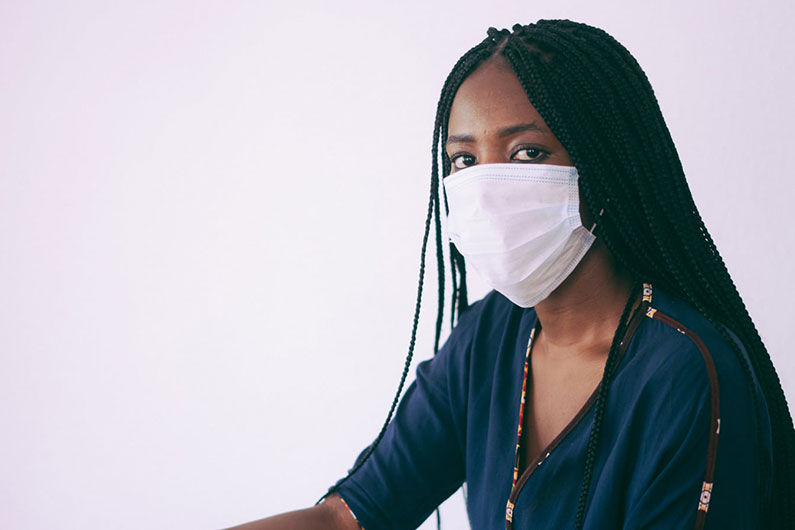Non-essential surgeries, such as rhinoplasties, were placed on hold during the coronavirus COVID-19 pandemic, but facial plastic surgeons such as Mr Charles East have been preparing for the return of elective procedures with safety at the heart of all decisions regarding patient care. Read on for his explanation of what these safety measures involve for patients wishing to undergo rhinoplasty surgery during the coronavirus pandemic.
When are you looking to return to performing rhinoplasty surgery following the pandemic?
To facilitate adequate emergency resources, all non-essential surgery in the UK was suspended in March 2020. Only urgent or emergency procedures were permitted both in the NHS and in private practice. The control of all private hospitals remains under the NHS – this ’contract’ was intended to be three months only, but the government has not given the 30-day notice to release the private institutions who are all bound by the rules and regulations.
At present, the NHS is commandeering the majority of the private operating lists and so access for non-essential surgery is only possible where there is unused NHS theatre time (usually evenings). This varies from week to week and given the ruling that all patients must self-isolate for two weeks before surgery, it has been very difficult to plan or execute rhinoplasty procedures.
So, in the immediate term, it’s very hit and miss with the majority of patients having no opportunity to progress to have their operation.
We are hoping these restrictions are lifted at the end of August but there’s no guarantee that this will happen. This adds to continuing uncertainty and a huge backlog of private patients who effectively have been denied any access for routine surgery.
What are the regulations for surgeons to adhere to during and after the pandemic?
The primary issue for anyone having elective surgery is safety, and so the establishment of COVID free (also called COVID green) pathways has been very important. All staff are now required to have either an antibody test or repeated COVID antigen tests to ensure patients and surrounding staff are safe.
Patients are required to self-isolate before surgery – this has recently changed now to appropriate social distancing and handwashing 14-days pre surgery and involves having a compulsory COVID test within 72 hours of the planned operation date. The patient should self-isolate from the time of the test until they are admitted.
Furthermore, adequate PPE (personal protective equipment) is required for all staff, there is a limitation on the number of people who can come into hospital with the patient and as many telemedicine consultations should be undertaken pre-and post-surgery, therefore avoiding the need for face-to-face meetings.
What is the COVID surge study and what have we learnt?
This is a multicountry prospective study coordinated from the University of Birmingham collating the outcome of patients who underwent surgical procedures under both general and local anaesthetic and had a positive COVID diagnosis around the time of their operation.
The study continues, but the early results indicate that catching COVID either immediately before or after surgery can certainly lead to a worse outcome and risk of serious complications. We now understand better the risk categories both by age, sex and comorbidities (the presence of other conditions at the same time) and we can advise our patients appropriately about proceeding with elective surgery during a pandemic.
Is it possible to perform rhinoplasty surgery on a patient who’s had coronavirus?
Yes, we believe it’s safe to proceed with general anaesthesia and surgery after fully recovering from the COVID–19 infection.
However, in a small percentage of patients, there may be lingering problems (mainly lung-related) which can adversely affect their health if they proceed with anaesthesia, and so specialist investigations may be required and clinical tests performed before approval to proceed can be given.
Why is it important now for patients to work with a certified specialist/institution?
Remember that it’s your health at stake and with the pandemic likely to continue for several more months, it is essential that you are seen, treated and managed by a specialist who is fully accredited and compliant with the local regulations for your protection. This includes:
- Certified pre-treatment questionnaires
- Adequate management of clinic timing
- Appropriate PPE
- Strict disinfectant protocols
- Clear lines of referral for specialist support should a complication or a problem arise.
As a general guide, your specialist should be a member of one of the specialist surgical societies – e.g. Royal College of Surgeons, ENT UK, BAAPS (The British Association of Aesthetic Plastic Surgeons) – and be certified to be up-to-date with appraisal, training and specialist skills.
Despite the pandemic, you can still receive personalised advice and care from leading expert Mr East via video consultation and when possible, face-to-face consultation – click here to arrange your first appointment.


Recent Comments